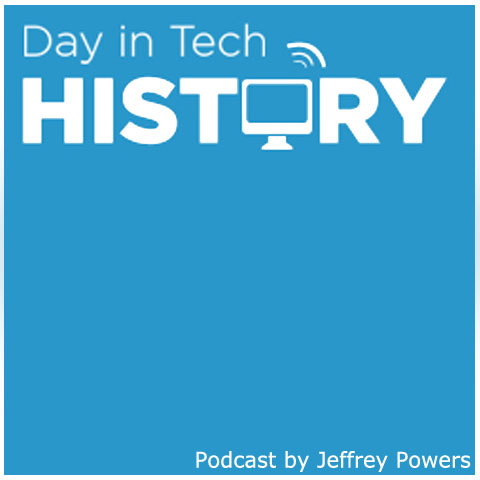Special
Happy Susan B. Anthony Day!
1946
the ENIAC is formally dedicated at the University of Pennsylvania.
1954
Canada and the United States agree to construct the Distant Early Warning Line, a system of radar stations in the far northern Arctic regions of Canada and Alaska.
1972
Sound recordings are first granted US copyright protection
1983
Magnavox settles its television game patent infringement suit against Mattel Electronics and five other companies. Mattel will pay a settlement fee, and be licensed to continue producing and selling Magnavox systems.
Kevin Mitnick is arrested by the FBI and charged with breaking into some of the most secure computer systems in the United States, including the California DMV, NORAD, and PacBell. During the course of his hacking, Mitnick had also stolen twenty thousand credit card numbers.
1996
Thursday, February 15, U.S. District Judge Ronald L. Buckwalter blocks enforcement of the new law signed by President Clinton punishing anyone who makes indecent material available to minors over computer networks. The temporary restraining order remains in effect until attorneys present their case pursuant to a lawsuit filed by the American Civil Liberties Union (ACLU) and nineteen other groups. The crux of the matter rides on the definition of indecent.
1999
About one hundred programmers march on Microsoft’s offices in Foster City, California demanding a refund for unused copies of the Windows operating system bundled onto computers they had purchased. According to Microsoft’s licensing terms, if the user does not wish to abide by the terms of the license, they may return the software to the retailer for a refund. Users found that the process to obtain a refund is difficult if not impossible when the Windows operating system comes bundled with the system at the time of purchase.
2000
At the Intel Developer’s Forum, Intel demonstrates the upcoming 32-bit processor, code-named Willamette, which runs at 1.5 GHz.
President William Jefferson Clinton meets with computer executives to discuss strategies to deter web hacking. Clinton’s is accompanied by Peiter C. Zatko, aka Mudge, a member of the high profile hacker think tank, the L0pht. Referring to a recent wave of denial of service attacks on a number of prominent Web domains, Clinton states, I think it was an an alarm. I don’t think it was Pearl Harbor.
2001
Checkout.com releases an email to its past customers announcing that they have, effective immediately, stopped taking orders and will be closing their site within four days.
CNBC cut its news portal operation by twenty-six percent as part of a company-wide move to streamline their financial situation. The cut at CNBC.com affects about nineteen of their five hundred twenty employees.
The Federal Trade Commission (FTC) reveals that a Georgia court has issued a restraining order against a company that duped web-site owners by charging a seventy dollar fee to circumvent bogus web-site name registrations. According to the FTC, Darren J. Morgenstern whom is named as the defendant victimized more than twenty seven thousand consumers.
2002
Well-known grayhat hacker Adrian Lamo, age 20, hacks the New York Times internal network with nothing more than an ordinary web browser, acquiring information on three thousand high profile op-ed writers, including former President Jimmy Carter. Read more at the Security Focus website. Lamo will enter a guilty plea federal computer crime charges in January of 2004.
2009
Facebook hits 175 million users
Viacom shuts of the MTV music video API – You basically cannot embed videos being played on MTV.com
Pirate Bay trial begins in Sweeden
2013
The Apple Shop was forced to change their name. The Apple Shop is a corner store in the UK that sold cider for over 20 years, but got too many calls asking to repair Apple technology.
